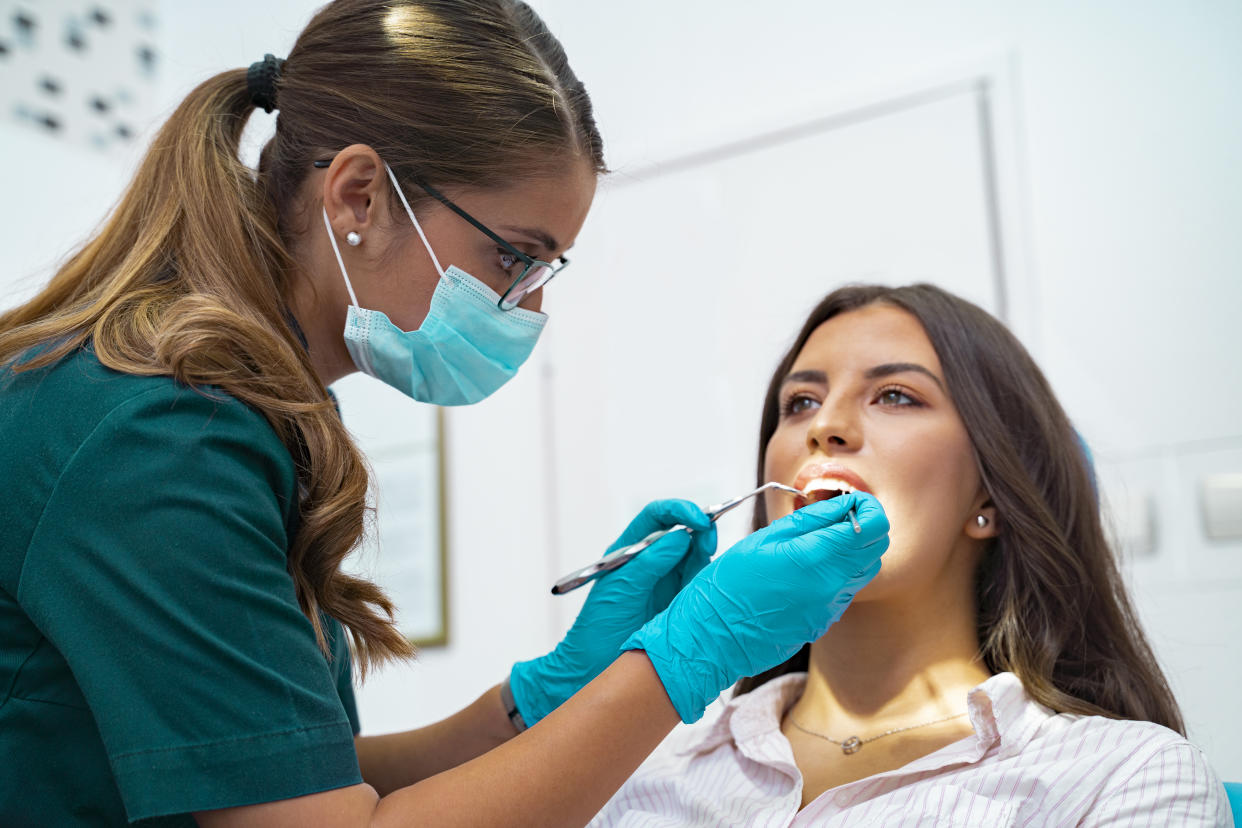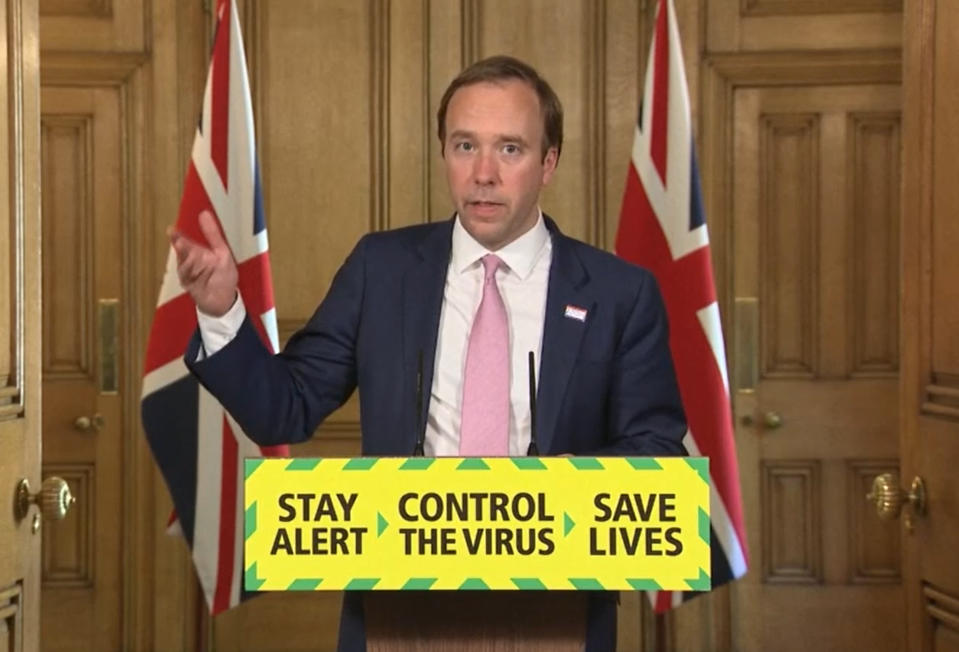Coronavirus: Dentists running at a 'fraction of their pre-pandemic capacity'

The easing of coronavirus restrictions means dentists in England can open as normal, providing safety provisions are in place.
Routine check-ups were largely cancelled after lockdown was implemented on 23 March, leading to an uptake in virtual appointments.
While emergency care “hubs” carried on, less urgent services only restarted in England on 8 June.
This may sound a welcome step, however, an open letter to the health secretary Matt Hancock from the British Dental Association (BDA) has warned “few practices have opened their doors”.
Extreme safety measures mean those that are running are doing so at a “fraction of their pre-pandemic capacity”, leaving businesses struggling to stay afloat.

‘Few dental practices have opened their doors’
A recent poll of more than 2,000 dental surgeries by the BDA found just over a third (36%) were planning to reopen on 8 June. There is said to be around 10,000 practices in England.
The poll found 60% of surgeries intend to treat patients by the end of the month.
Insufficient personal protective equipment (PPE) was listed as be the biggest hinderance, putting both staff and customers at risk.
BDA chairman Mick Armstrong previously said practices will run a “skeleton service” as a result.
Writing in his open letter, he added: “High street dentistry was meant to start resuming across England.
“The reality couldn’t be further from the truth.
“Few practices have opened their doors and those that did were operating at a fraction of their pre-pandemic capacity”.
Armstrong has urged Hancock to “take responsibility to avert the existential crisis facing a service struggling with sky-high costs and radically reduced patient numbers”.
Social distancing requirements mean open practices are expected to treat far fewer patients.
‘Essential business safeguards oral health’
Perhaps surprisingly, dentists are not considered key workers amid the pandemic.
Armstrong argued this creates problems among those who need to send their children to nursery or school in order to work.
He added practices with “no or low levels of activity are still paying [business] rates”.
“These are essential businesses safeguarding the nation’s oral health,” wrote Armstrong.
“We are struggling to understand why the treasury, while offering needed relief to other high street businesses – and subsequently extending it to cover the gambling industry – remains blind to the risks facing this sector”.
The BDA chair also pointed out the rising costs, and limited supply, of protective gear.
“Costs for PPE to complete a single course of treatment based on industry sources have increased by up to 6,000%,” he wrote.
Overall, no more than “8% [of dental practices] estimate they can maintain their financial sustainability longer term, in the face of sky high overheads and lower patient numbers”, wrote Armstrong.
“There has been no clear message to patients and the profession about what reopening actually means in the light of what will inevitably be a vastly reduced service with minimal options to even maintain oral health let alone improve it”.
Even before the coronavirus outbreak, a BBC probe suggested two million people in England struggled to get dentist appointments.
This was blamed on a “perfect storm” of underfunding, inadequate contracts and poor recruitment into the profession for the shortage.
“For years, communities from Cornwall to Cumbria struggled to get appointments but were ignored,” wrote Armstrong.
“Without action from this government, access problems – on an unprecedented scale - are going to be visited on millions of patients, in every part in England.”
Coronavirus: what happened today
Click here to sign up to the latest news, advice and information with our daily Catch-up newsletter
Read more about COVID-19
How to get a coronavirus test if you have symptoms
How easing of lockdown rules affects you
In pictures: How UK school classrooms could look in new normal
How public transport could look after lockdown
How our public spaces will change in the future
Help and advice
Read the full list of official FAQs here
10 tips from the NHS to help deal with anxiety
What to do if you think you have symptoms
How to get help if you've been furloughed



